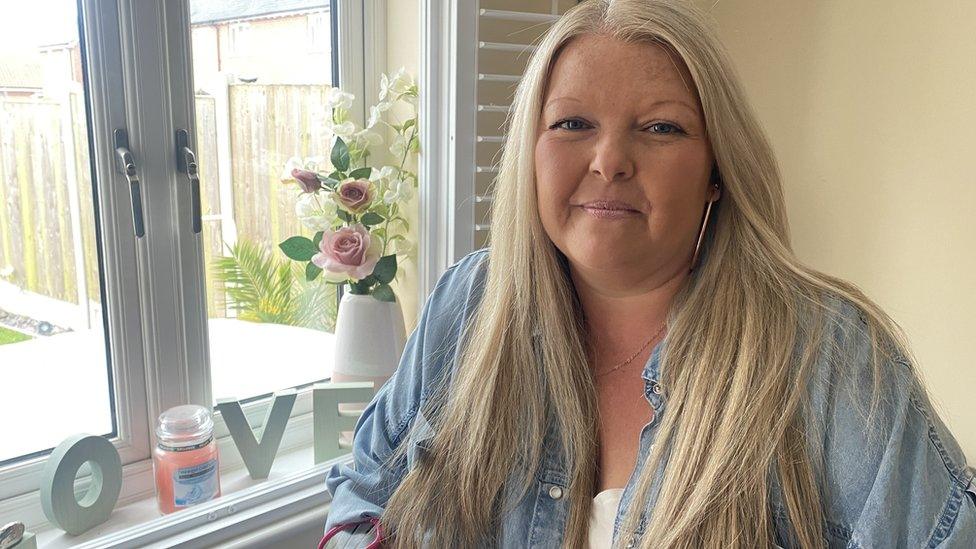Richard Mylan: Waterloo Road star reveals heroin addiction battle
- Published
"It was the biggest mistake I ever made"
"This could be a career-ending interview but I don't care about that any more," actor Richard Mylan says as he opens up on his 20-year battle with heroin addiction.
The former Waterloo Road and The Bill star, who has been in recovery for 10 years, said he was one of a "number of many functioning professional addicts".
"What I care about is challenging our empathy response as a society," the father of two said about speaking out.
He said he hoped to reduce stigma.
"There are so many people out there who would never ever come forward because the stigma is so great," he said.
Mylan said he suffered from "crippling anxiety" and began taking illegal drugs at the start of his acting career during his time performing in theatre in London.
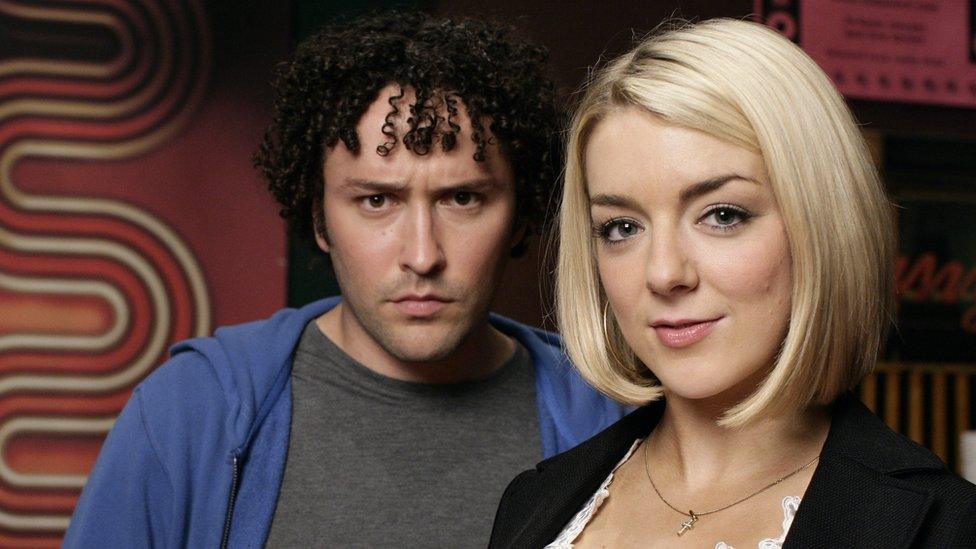
Richard Mylan starred alongside Sheridan Smith in BBC Three series Grownups
"It was the biggest mistake I ever made," said the 48-year-old, recalling his "one night of weakness" after "a few drinks" that started his drug addiction.
"I was in the West End from a young age and there was lots of alcohol and recreational drugs and that cemented certain negative behaviours."
'Absolute lowest'
The Welsh actor played many TV roles including deputy headteacher Simon Lowsley in school-based BBC TV drama Waterloo Road and alongside Sheridan Smith in BBC Three Series Grownups.
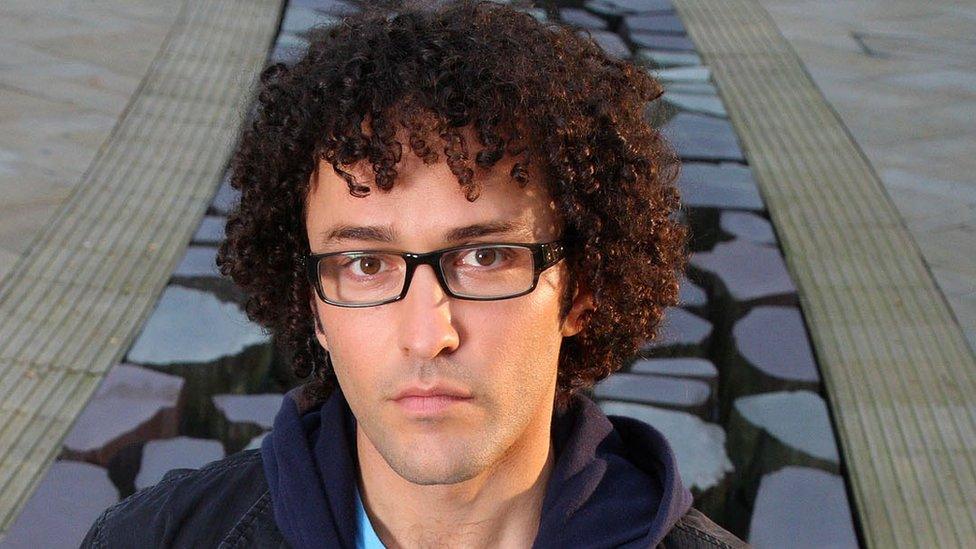
Richard Mylan left his home-town of Swansea aged 12 to begin his acting journey
But for large parts of his career, Mylan was also battling a "cycle of abuse" that led him to his "absolute lowest" as he spiralled between using drugs and getting clean.
"My personal relationships suffered, my work relationships suffered and it robbed me of my inner ambition," he said.
"I managed to work, I managed around relationships and things to a degree but nothing ever lasted because, ultimately, it was chaos. It definitely took chunks of my life away from me."
'I wanted to be happy'
Mylan decided to tackle his addiction 10 years ago as his drug use was getting "dangerously worse" and didn't want to be one of the approximately 4,500 people a year who die in the UK, external of drug abuse - of which almost half involved an opiate, external.
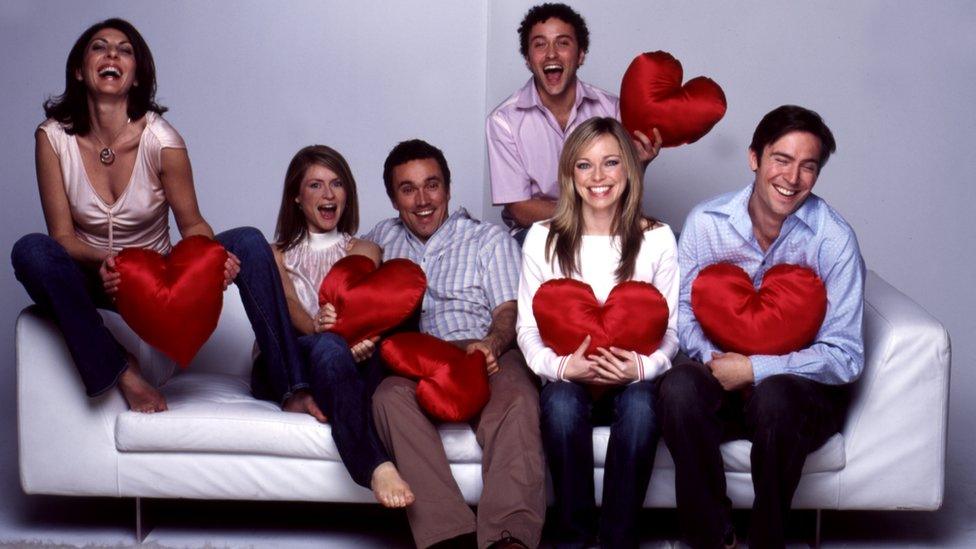
Richard Mylan played Oliver Morris in the BBC TV show Coupling that critics called the British version of Friends
"Ultimately, I'd had enough of that cycle of being dragged under and coming up for air then being dragged under again. You get so beaten down by that process," he said.
"I was almost like washed up on a shoreline half dead, thinking I've had enough. I wanted to live and be happy."
That's how his conversation with now wife Tammie started. She helped Mylan get the support he needed to finally get on top of his addiction, external.
'Unconditional support'
"She said whatever it is, we'll go through this together and that was the catalyst - having that unconditional support," he said.
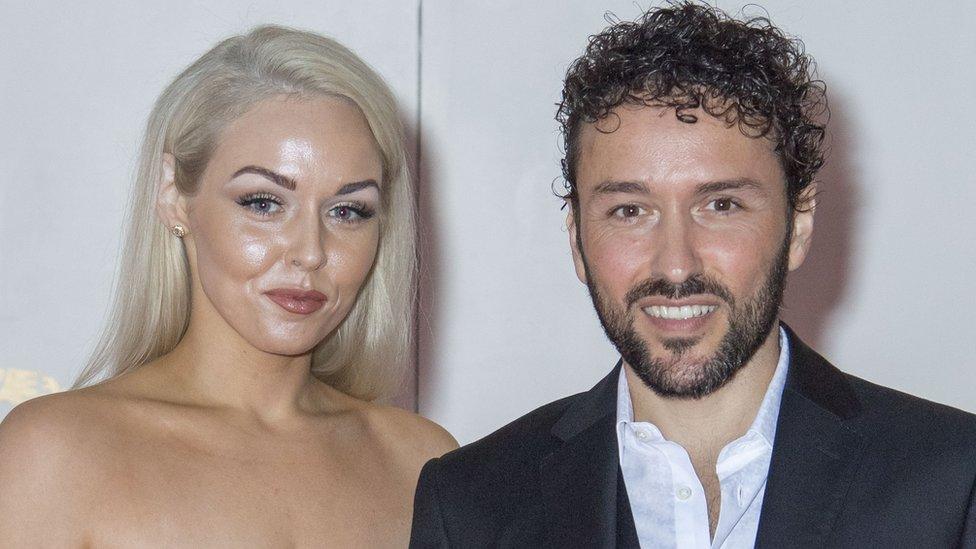
Richard Mylan says wife Tammie's support helped him through his recovery
Mylan said that while the public had a preconceived idea of what a heroin addict looks like, he is proof that some users are "functioning professional" people holding down a career.
"Remember I am who people thought I am but I am also this... a recovering heroin addict," he said.
"People are complicated and need help, support and empathy. Everybody will know somebody who is in a similar position to me."
'Stigma kept me from talking'
Mylan now hopes people do not judge him for revealing the addiction he has kept secret for the best part of 30 years.
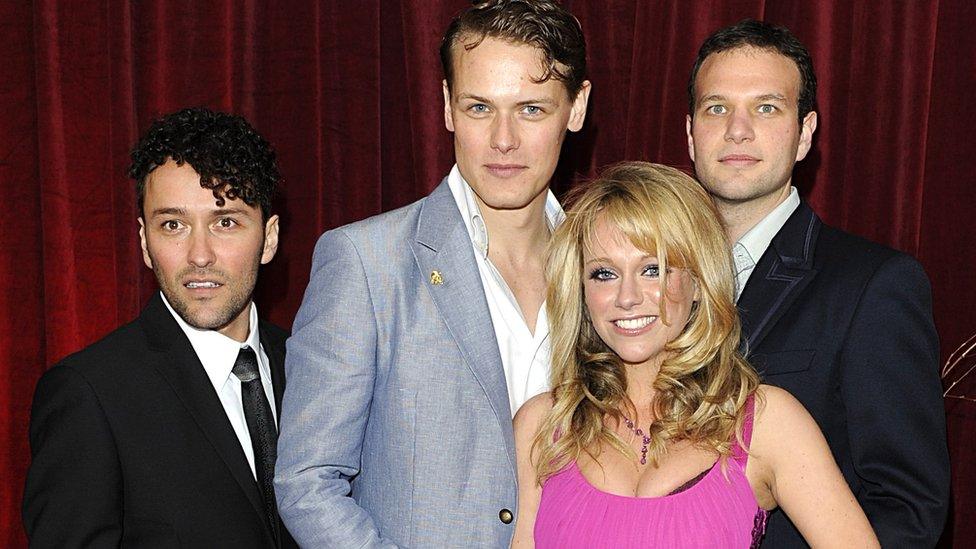
Richard Mylan starred in the long-running BBC TV series Doctors
"We must challenge stigma because if we have any chance of fellow addicts recovering, we have to alleviate that because it keeps people down," he said.
"Stigma has kept me from talking until now. Being in recovery doesn't define you and each step forward is a step towards who you really are. My recovery felt a journey back to me."
The latest official figures show the number of people in the UK getting continuous treatment for heroin abuse was almost 95,000 in 2018, external - down from almost 114,000 in 2011.
'Robbing people of themselves'
Now Mylan, a well-known autism awareness campaigner, wants to help fellow recovering addicts and works with south Wales-based substance misuse charity Adferiad, external.
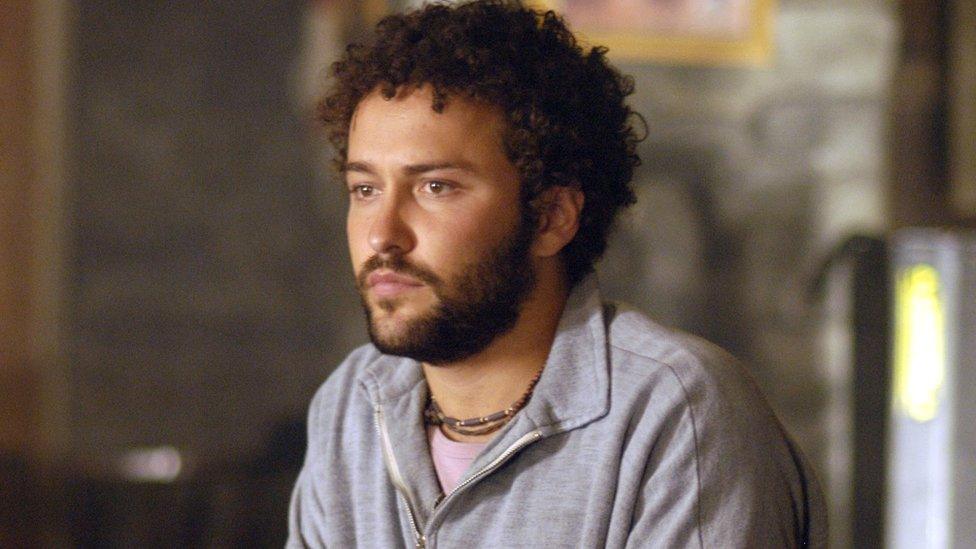
Richard Mylan has appeared in dozens of TV shows since his debut in the late 1990s
"Addiction can never lift you from where you need to go," said Mylan.
"Only the right medication from your GP to battle with your depression, anxiety or bipolar can help.
"Addiction is robbing people of themselves. They can never be brought back unless they have the right level of service and support.
"So I'd say to addicts, don't be scared about plugging in to support as they just want what's best for you. That is the reason why I am a successful recovering addict."
'Serious problem'
Mylan is now part of a campaign to challenge stigma with Adferiad, which supports nearly 16,000 vulnerable people every year, as he said such support was "absolutely instrumental" in his recovery.
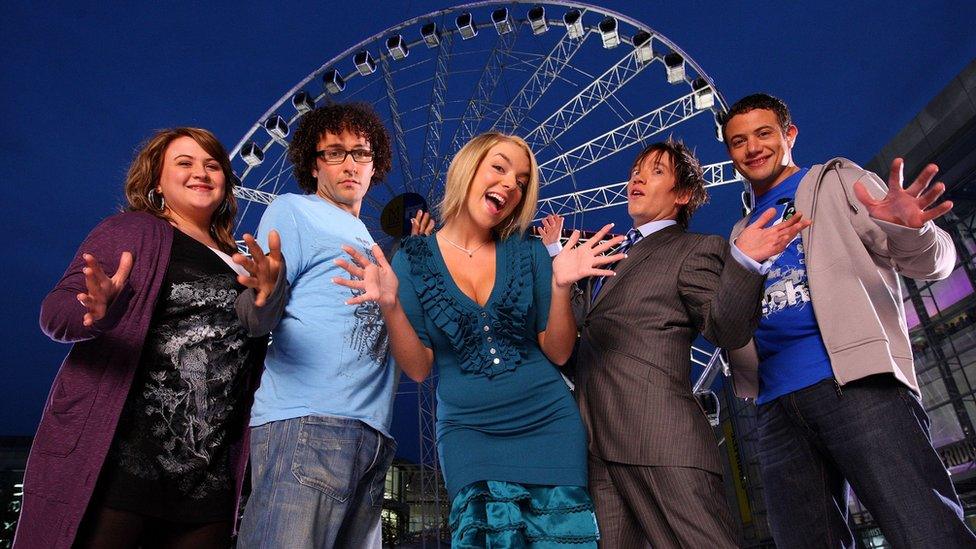
Richard Mylan played Chris in Grownups, a BBC sitcom which ran for three series between 2006 and 2009
"Opioid use across Wales continues to be a serious problem," said Adferiad associate directors Steve Campbell.
"There have been some very positive advances in measures to reduce harm with take-home Naloxone and Buvidal, which have helped to reduce the number of deaths caused by overdose.
"It is also true however that in around a third of opioid-related deaths, there is no known contact reported between the deceased and any support services."
Allow X content?
This article contains content provided by X. We ask for your permission before anything is loaded, as they may be using cookies and other technologies. You may want to read X’s cookie policy, external and privacy policy, external before accepting. To view this content choose ‘accept and continue’.
He added: "In order to combat this, it is vital that people reach out for support and receive the help that they need. Unfortunately, there is still a lot of stigma out there relating to the use of opioids and this can be a barrier to people seeking help.
"We know that being in treatment is a protecting factor against many of the risks associated with opioid use, so we strive to put an end to the stigmatisation of people and urge anyone who needs help to please reach out for support."
If you have been affected by any of the issues in this story, the BBC Action Line has links to organisations which can offer support and advice

BORN DEAF, RAISED HEARING: Jonny Cotsen explores what it means to live in two different worlds
MARGINS TO MAINSTREAM: Michael Sheen introduces new writers revealing their truths

- Published14 May 2022
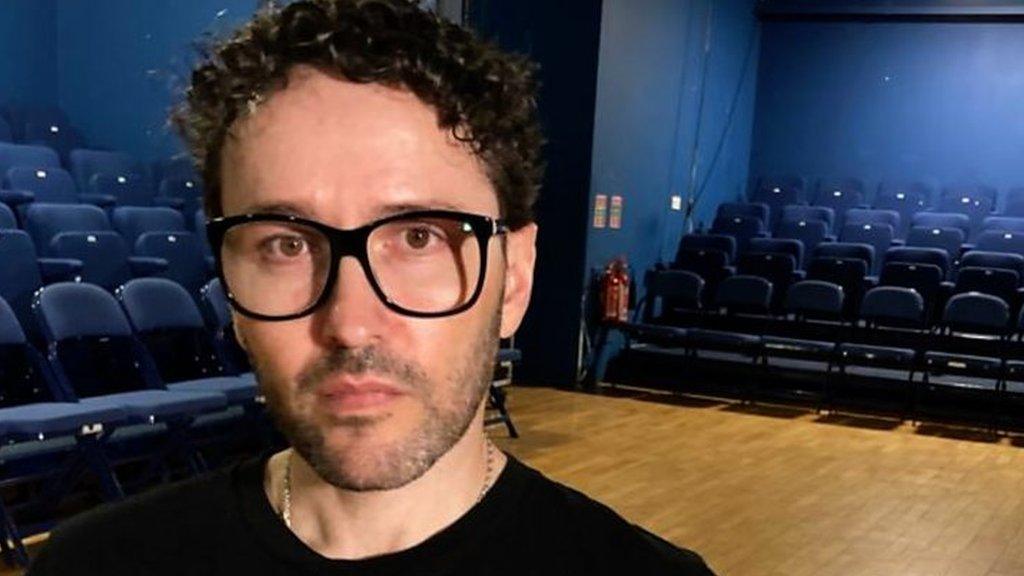
- Published5 December 2021
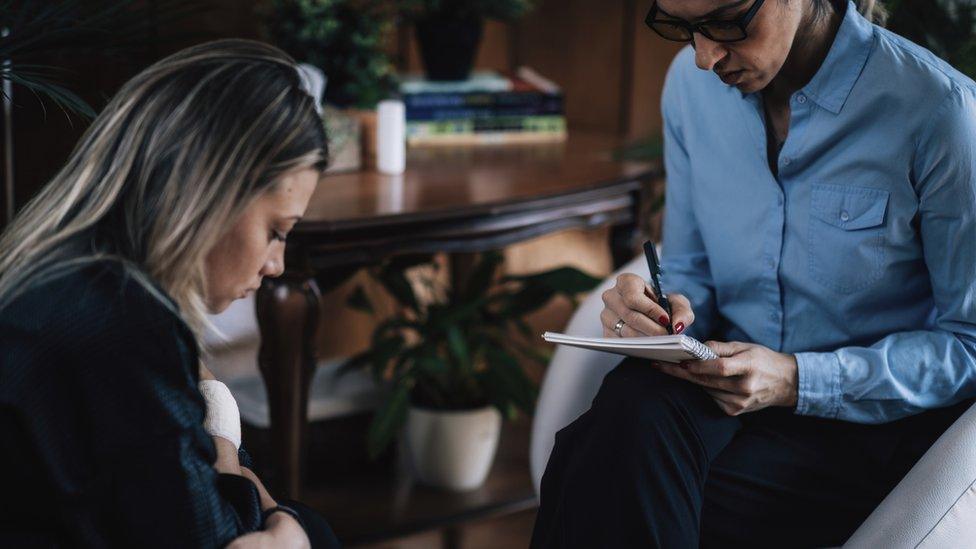
- Published6 December 2021
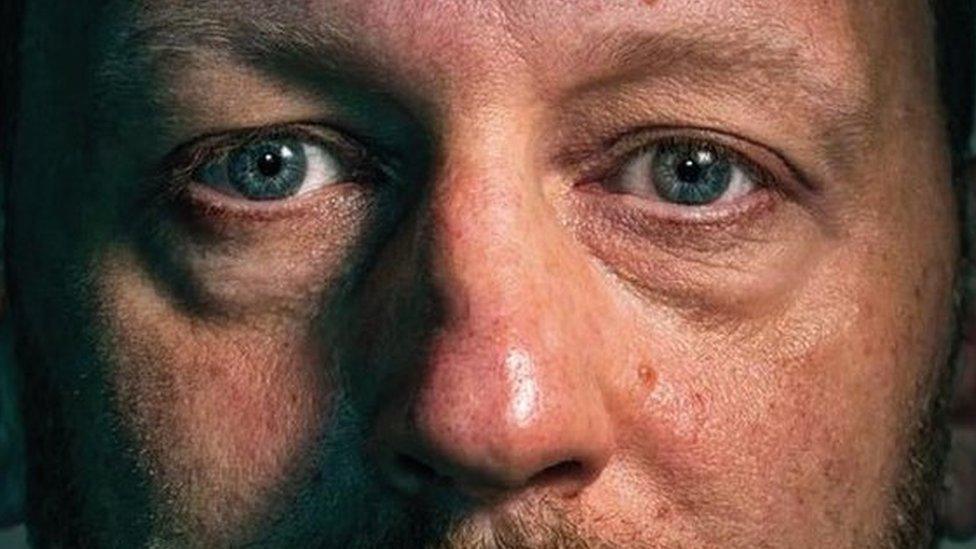
- Published6 December 2021
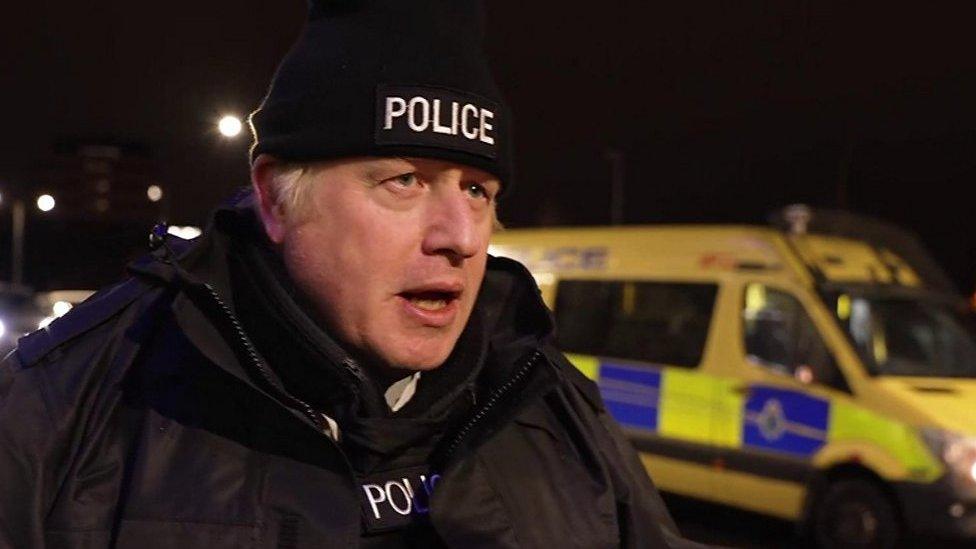
- Published12 May 2022
